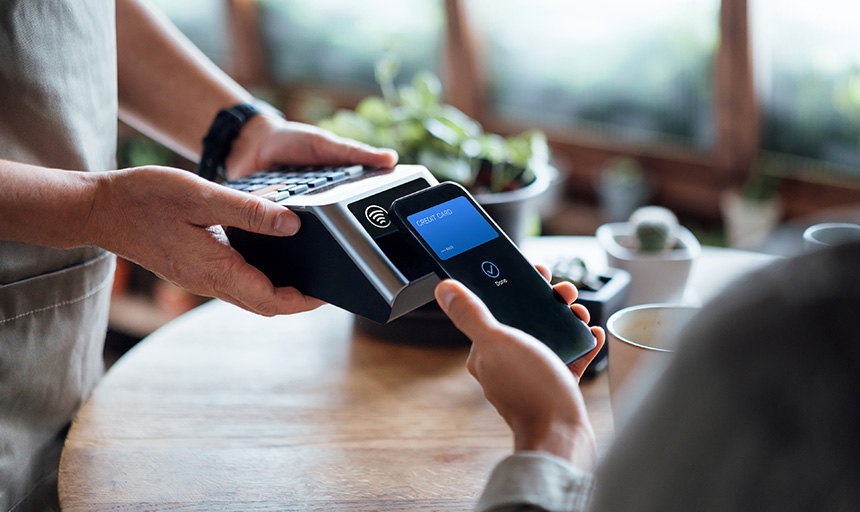Virginia Consumer Sentiment and Inflation Expectations Report for Feb. 2024
February 27, 2024
Category: Poll Releases

Consumer sentiment jumps into 2024
Consumer sentiment jumped more than seven points in the first quarter of 2024 to 73.2, reversing the skid over the second half of 2023. National sentiment is even more robust, increasing 18 points since November 2023 to 79.6 in February. Consumers, both in Virginia and the nation, seem assured of the underlying strength of the economy and that inflation will continue to moderate.
A quarter of respondents – up almost three percentage points from last quarter – report that their household finances are better today than a year ago, while 40% believe that now is a good time to buy large, durable goods like a refrigerator. The Virginia Index of Current Conditions (ICC) is 65.0 in the first reading of 2024, up from 60.7 in the fourth quarter of 2023, but is well below the national preliminary reading of 81.5 and the highs prior to the COVID-19 pandemic. A plethora of positive economic news supports their optimism and likely is a primary driver of it. Labor markets remain strong; wage growth continues to outpace inflation, giving workers more purchasing power; and the overall economy, as measured by GDP, grew faster in the final quarter of 2023 than anticipated (3.3%.)
Thirty-six percent of Virginians believe their household finances will improve over the coming year compared to 20% who anticipate growing challenges. Forty-eight percent think the coming few years will include periods of high unemployment and economic recession, down dramatically from 59% last quarter. The Virginia Index of Consumer Expectations (ICE) was 78.5 in the first quarter of 2024, up nine points from the last quarter. Comparatively, the preliminary national ICE was 78.4 in February, up more than 21 points since November 2023. The rapidly improving optimism about the near-term future indicates that consumers are becoming more confident that inflation moderation will be sustained and that we are past the transitory elevated levels.
Virginians anticipate that prices will rise by 2.5% over the coming year and 3.7% over the longer term; the short-term price expectation is down from 2.7% last quarter, while the long-term expectation is up slightly from 3.6%. The lack of substantial movement in these expectations indicates that Virginians are growing more confident in inflation moderation and price stability, which typically reduces worry and facilitates budgetary planning. Nationally, the year-ahead inflation expectation is 3.0%, keeping it in the 2.3-3.0% band sustained over the two years prior to the COVID-19 pandemic.

The Virginia Consumer Sentiment Report is conducted by the Institute for Policy and Opinion Research at Roanoke College as a public service.
Analysis
"In a remarkable turnaround, consumers seem increasingly confident that the inflation moderation of the past few years and the relative stability of the last few months will persist and that we are past the transitory inflation,” said Dr. Alice Louise Kassens, John S. Shannon Professor of Economics and Senior Analyst at the Roanoke College Institute for Policy and Opinion Research. “Price stability facilitates negotiations and budgetary planning, which promotes productivity and economic growth. Virginians’ short- and long-term price expectations are now consistently where they were coming out of the pandemic. Although things are still more expensive than a year ago, Virginians have tempered their frustrations, reflected in our analysis at the end of 2023, and are ready to move on with the economy of today. Things are more expensive than a year ago, but wage growth is consistently outpacing inflation, giving consumers more buying power, and labor markets continue to be strong. Consumers are resilient, bolstering our economy, and are moving past their frustrations with inflation – at least for now.”
Methodology
Interviewing for the Roanoke College Poll was conducted by The Institute for Policy and Opinion Research (IPOR) at Roanoke College in Salem, Virginia, between Feb. 11 and Feb. 19, 2024. A total of 703 completed interviews came from random telephone calls to 425 Virginians, and 278 responses were drawn from a proprietary online panel of Virginians. Interviews were conducted in English. Cellphones constituted 69% of the completed phone interviews.
The landline sampling frame was created by random digit dialing, with area code and exchange coverage made proportional to population density in Virginia, and services from iconectiv, LLC, were used to remove numbers that had been ported to a cellular provider. Marketing Systems Group provided the cellular dialing frame using a combination of random digit dialing and randomly selected numbers with a Virginia billing zip code to ensure representation. Lucid, LLC, facilitated the online panel with completion time and attention check questions used for quality control. IPOR regularly uses bootstrap analysis of post-survey results to control for quality within the blended frames.
Questions answered by the sample of 703 respondents are subject to a weighted error margin (including design effect) of plus or minus 4.6% at a confidence level of 95%. This means that in 95 out of 100 samples such as the one used here, the results should be at most 4.6 percentage points above or below the figure obtained by interviewing all Virginians with a home telephone or a cellphone. Where the results of subgroups are reported, the error margin is higher.
Quotas were used to ensure that different regions of the commonwealth were proportionately represented. The data were statistically weighted for gender, race and age. Weighting was done to match Virginia data in the 2022 one-year American Community Survey (ACS).
A copy of the questions and all toplines may be found here.
More information about the Roanoke College Poll may be obtained by contacting Dr. Alice Kassens at kassens@roanoke.edu or 540-375-2428 or the Roanoke College Public Relations Office at 540-375-2282 or rcnews@roanoke.edu. roanoke.edu/IPOR